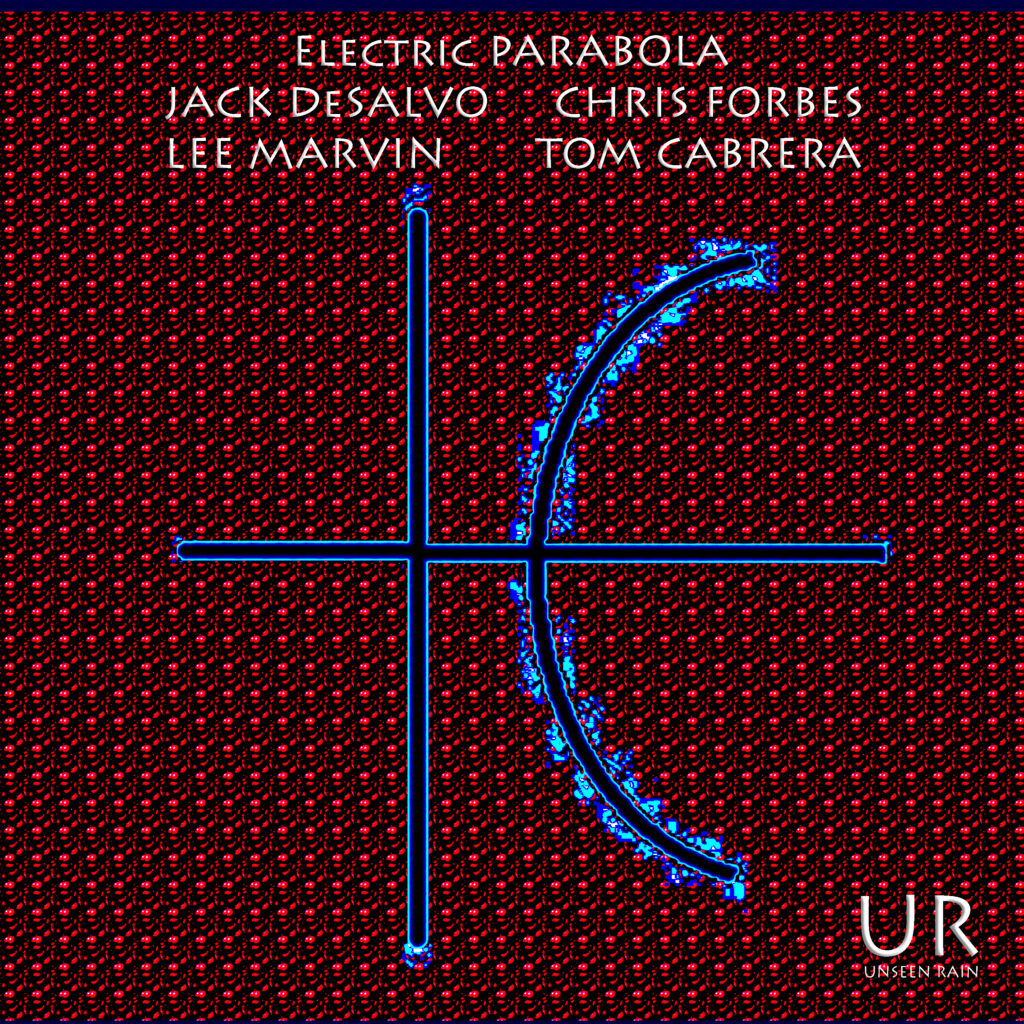New York City quartet which promotes changes, all sorts of changes.
Rocco John Quartet – Embrace the Change [TrackList follows] – Unseen Rain UR-9947, 67:49 [5/6/16] ****:
(Rocco John Iacovone – alto and soprano saxophone; Rich Rosenthal – guitar; François Grillot – double bass; Tom Cabrera – drums)
Alto and soprano saxophonist Rocco John Iacovone and his quartet make accessible avant-garde and free jazz; or rather the musicians produce free-ranging material that is challenging but which is not too demanding to enjoy. There is an engaging openness to the eight lengthy tracks on this 68-minute release, Embrace the Change. There’s a continual development throughout Iacovone’s originals, a sense that listeners might not know where they’re going to next, but will appreciate the shifts and curves along the way. Rocco John (he shortens his name for his album projects) explains the underlying concept for his latest recording, “Embrace the change is a thought, an idea, and a philosophy. It’s a comment on our evolution as human beings. It seems the only constant we experience is change and we constantly need to learn how to deal with it. To do this, we have to dig deep. These were the thoughts behind the compositions as I wrote them, and as we went into the studio.”
Rocco John studied with Lee Konitz and Sam Rivers, and learned composition from Nadia Boulanger; that education and his many years as an active member of the NYC jazz community has honed his abilities as performer and writer; and as collaborator and leader. All of Rocco John’s skills and talent fuse on this creative outpouring, where he is joined by other New York artists: guitarist Rich Rosenthal (who operates his own ensemble and has credits which include Mark Dresser, Joe McPhee and Dom Minasi); double bassist François Grillot (who also runs his own band and has worked with Jason Hwang, Daniel Levin and others) and drummer Tom Cabrera (who co-founded the Julie Lyon Quartet with his wife; and has recorded with other Unseen Rain label mates).
The foursome commences with the free-bop “Wings,” a 7:18 piece which defies easy expectations. The mutable harmonics, for example, mirror those often associated with Ornette Coleman (principally his 1970s or 1980s LPs), while Rocco John’s sometimes bleating horn honors John Coltrane. While it would have been simple to go overboard, the quartet maintains a defiant, but in no way overzealous, confidence in letting the music go where it must. The eight-minute “Circuits” envelops the notion that all people are connected, no matter a person’s racial background, religious history or political orientation. “Circuits” has a pronounced pace and nuanced progression, highlighted by Rosenthal and Iacovone’s twinned sax and guitar; Cabrera’s subtle brushes on cymbals; and Grillot’s bass lines. During this track, Grillot deftly brings to mind Dave Holland, due to Grillot’s superlatively understated rhythmic changes. The proceedings get more restless and edgy on “Escape,” where the quartet employs a tumbling tempo and head to liberating territory with intense but never extreme solos. Rocco John clarifies the tune is about the “need to escape the traps and think independently and creatively.”
Spirituality and belief is the focus of “Dial Up.” Iacovone discloses the eight-minute number “represents calling for assistance from the universe.” While the title implies an older conveyance of communication, “Dial Up” is modern creative music with an ear to the present, past and future all at once. Rosenthal’s lighter tone settles his guitar back a bit in the mix, while Rocco John’s sax is upfront and spotlighted throughout. Cabrera and Grillot sustain an advanced rhythmic approach which furnishes an off-kilter mannerism which befits this ever-moving composition. Another tune which links individuals to the cosmos is the longest piece, called “72s,” which Iacovone simply states, is a “connection to the Endless.” This track affords plenty of space and room for crisscrossed musical patterns which blend free jazz, post-bop, open improvisation and more, fashioning the album’s most comprehensive and multifaceted tune. One notable spot is a middle section where Rosenthal takes a fluid solo accentuated by Grillot’s beautiful arco bass. The Rocco John Quartet conclude as they begin, with an alternate rendering of the opening track, the 7:51 “Wings (Epilogue).” While this version is different from the first one, it shares the same attitude of nonconformity and inventiveness. Embrace the Change may be a smidge discordant or jarring at times, but it’s not harsh or rasping, and everything about the band’s methodology contributes to the perception that this is music that is intentionally open-minded and celebratory, but determinedly not strident or piercing.
TrackList: Wings; Escape; Circuits; Dial Up; Tango; Whispers; 72s; Wings (Epilogue).
—Doug Simpson



Leave a Reply
You must be logged in to post a comment.